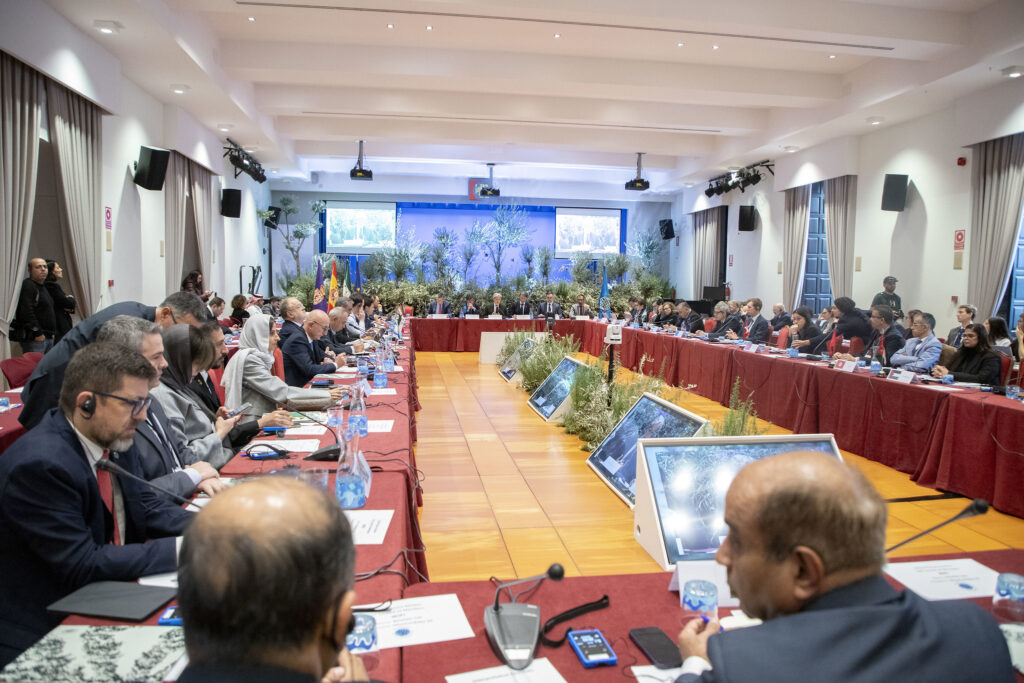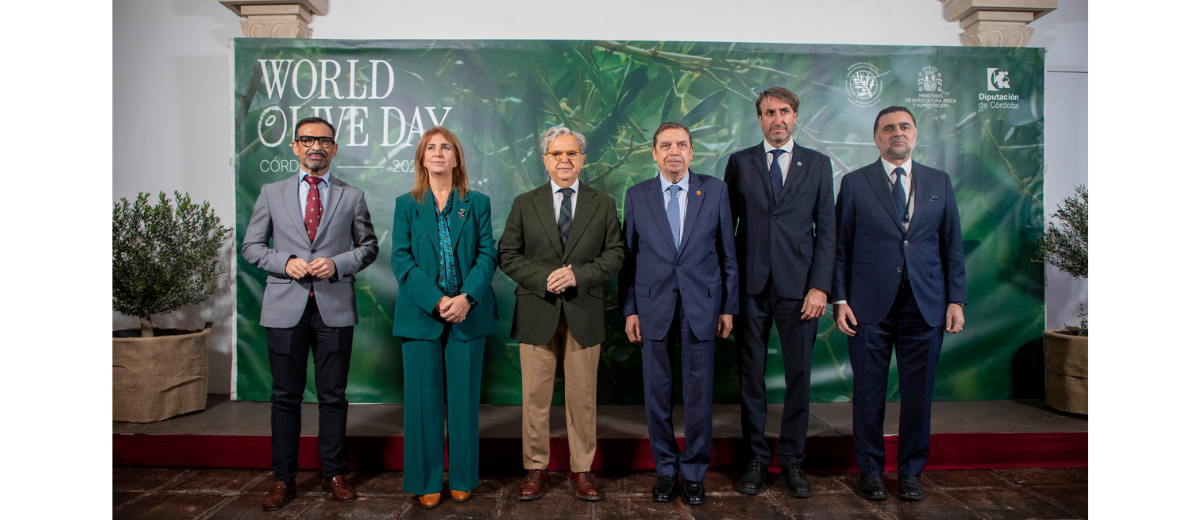The world’s leading olive-producing and consuming countries join forces to shape the future of a strategic sector
Delegations from 45 out of 47 member countries arrived in Córdoba (Spain) this week to take part in the 122nd session of the International Olive Council (IOC), the world’s only intergovernmental organisation dedicated to olive oil and table olives.
This biannual plenary session, which takes place from 19 to 20 November, comes at a pivotal time for the sector, which is experiencing a strong upturn in global production and consumption. The IOC provides a unique international platform where producing and consuming countries come together to coordinate technical standards, stimulate innovation and sustainability, and promote the benefits of olive products worldwide. On this occasion, the IOC hosted in Córdoba delegates from the following countries and international organisations: all European Union countries, represented through the European Commission, as well as Algeria, Egypt, Georgia, Iran, Israel, Iraq, Jordan, Lebanon, Libya, Morocco, Pakistan, Palestine, Saudi Arabia, Syria, Tunisia, Türkiye and Uzbekistan. Observers included Brazil, Pakistan, Syria, Iraq, the International Centre for Advanced Mediterranean Agronomic Studies (CIHEAM) and the International Dates Council.
Record production and exports herald global recovery
The 2024/25 crop year is set to reach historic levels, with world production of 3.575 million tonnes of olive oil and 3.318 million tonnes of table olives, an increase of 5% on the previous record, a significant rebound after two years of underperformance.
Olive oil exports also reached a record level, at 1.3 million tonnes, up 27% on the previous crop year. Around 40% of the world’s olive oil is now exported, reflecting growing demand in key markets such as the United States, Canada, Australia and China.
A strategic forum for cooperation, standardisation and sustainability
The IOC’s mission is first and foremost to support a sector that is essential to rural livelihoods, public health and environmental resilience. The 122nd Session of the IOC is an opportunity for members and observers to review progress in a number of priority areas, including:
- The development of a tool for calculating the carbon balance of olive groves with a view to proposing a voluntary carbon credit certification scheme;
- Continuation of the IOC promotion campaign in Brazil, a key emerging market;
- Updating the IOC’s interactive statistical dashboard, to improve transparency and access to data;
- Ongoing work to strengthen quality standards and analysis methods to ensure product authenticity and consumer confidence.
Through these initiatives, the IOC continues to implement the provisions of the 2015 International Agreement on Olive Oil and Table Olives, which defines its role in standardisation, research, technology transfer, sustainability and promotion.

World Olive Day: political and international support for the olive sector
The importance of the olive sector will be reaffirmed on 20 November, when countries come together for World Olive Day. The event will be an opportunity to express the countries’ joint support for the Córdoba Declaration, a text that reaffirms the sector’s contribution to sustainable development, healthy food, biodiversity and the conservation of cultural heritage.
Jaime Lillo, the IOC’s Executive Director, expressed his sincere thanks on behalf of the Organisation’s Executive Secretariat to the President of the Province of Córdoba, Salvador Fuentes, and other authorities who, by hosting both the plenary session and World Olive Day, are confirming the region’s historical and economic links with this crop. He also thanked the Spanish Minister of Agriculture, Fisheries and Food, Luis Planas, who, in a strong gesture of political commitment, greeted the delegates of the plenary session and invited his counterparts from IOC member countries to take part in the next day’s event. The IOC’s Executive Director reiterated his “determination to strengthen the IOC’s role in unifying the global sector, guaranteeing quality and sustainability, and supporting rural and economic development”.
Context
The International Olive Council, based in Madrid, is the world’s only international organisation dedicated to olive oil and table olives. Its 47 members account for over 94% of world olive oil production and a growing share of consumption. The IOC promotes technical cooperation, international standards, environmental sustainability and trade in olive products, and coordinates international celebrations such as World Olive Day, officially recognised by UNESCO.








